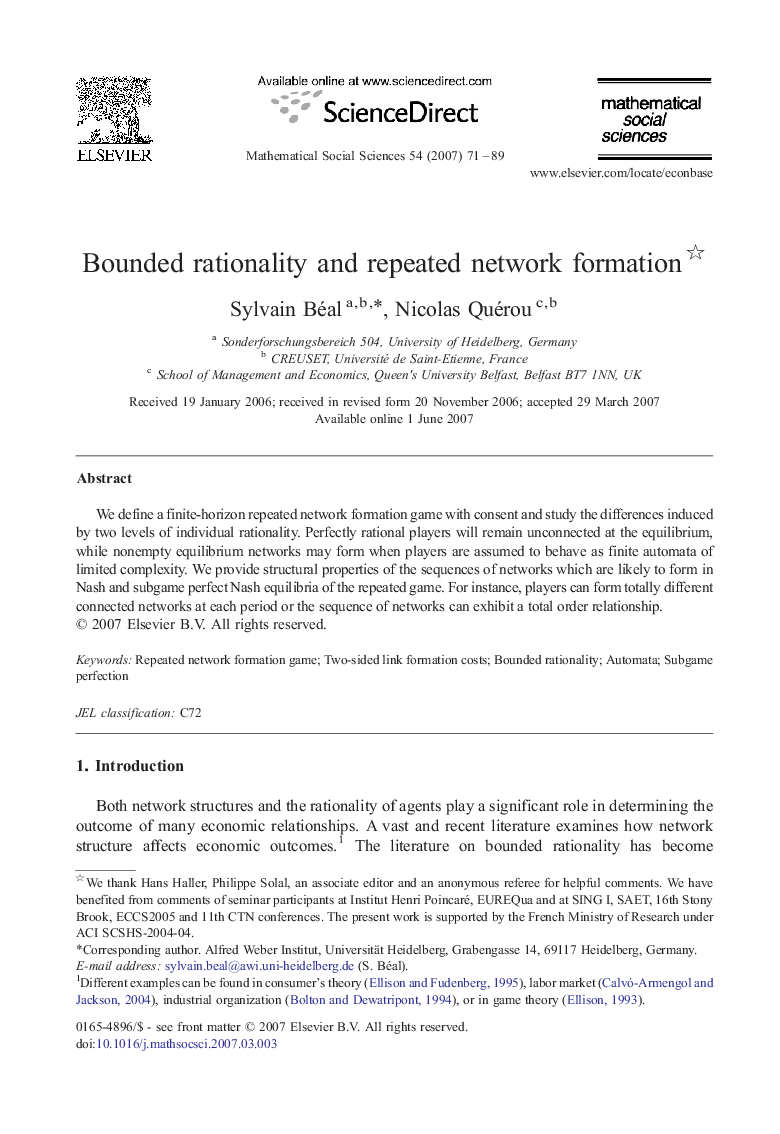| Article ID | Journal | Published Year | Pages | File Type |
|---|---|---|---|---|
| 972816 | Mathematical Social Sciences | 2007 | 19 Pages |
Abstract
We define a finite-horizon repeated network formation game with consent and study the differences induced by two levels of individual rationality. Perfectly rational players will remain unconnected at the equilibrium, while nonempty equilibrium networks may form when players are assumed to behave as finite automata of limited complexity. We provide structural properties of the sequences of networks which are likely to form in Nash and subgame perfect Nash equilibria of the repeated game. For instance, players can form totally different connected networks at each period or the sequence of networks can exhibit a total order relationship.
Related Topics
Physical Sciences and Engineering
Mathematics
Applied Mathematics
Authors
Sylvain Béal, Nicolas Quérou,
